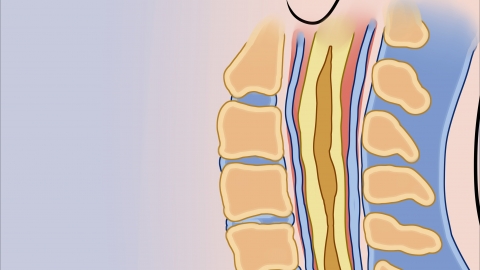What are the symptoms of myelitis?
Generally, symptoms of myelitis include limb weakness, sensory abnormalities, dysfunction of bowel and bladder control, muscle atrophy, and pain. If discomfort occurs, timely medical treatment is recommended. Detailed explanations are as follows:

1. Limb Weakness
The spinal cord serves as a crucial pathway for nerve conduction. Myelitis can damage spinal nerves, affecting the normal transmission of nerve impulses, causing muscles to fail to receive effective motor signals, thereby resulting in limb weakness. In severe cases, it can progress to paralysis.
2. Sensory Abnormalities
The spinal cord contains sensory nerve fibers. When inflammation occurs in the spinal cord, the function of these sensory nerve fibers may be disrupted, preventing sensory signals from being transmitted normally to the brain. Patients may then experience reduced or lost sensation, or abnormal sensations such as numbness, tingling, or burning below the level of the lesion.
3. Dysfunction of Bowel and Bladder Control
The spinal cord contains neural centers and nerve pathways that control the bladder and rectum. Myelitis damages these neural structures, causing disruptions in nerve regulation and impairing the ability to control contraction and relaxation of the bladder and rectum normally, leading to symptoms such as urinary retention, urinary incontinence, constipation, or fecal incontinence.
4. Muscle Atrophy
Long-term spinal nerve damage deprives muscles of neural nutritional support and normal stimulation, preventing muscles from performing normal metabolism and physiological activities. This gradually leads to disuse atrophy, manifested as thinner limbs and decreased muscle strength.
5. Pain
Inflammatory stimulation of the spinal cord's nerve tissues causes neuropathic pain. Patients may feel pain at the affected site, which can be localized aching, stabbing, or radiating pain, with varying intensity and nature among individuals.
Maintaining good personal hygiene habits, washing hands frequently, and avoiding crowded and poorly ventilated places are recommended in daily life. Additionally, enhancing immunity through regular作息 (作息 should be translated as "作息" is not fully translatable directly but refers to maintaining a regular routine), ensuring adequate sleep, maintaining a balanced diet, engaging in moderate physical exercise, and maintaining good physical condition can help reduce the risk of illness.










